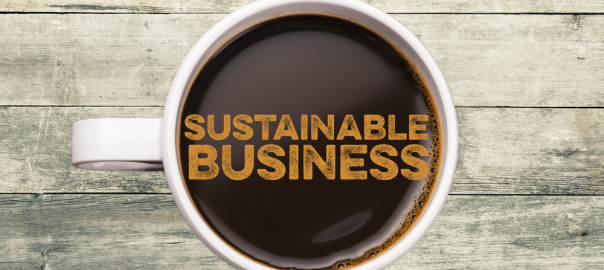Your Real Estate Business Needs to Know These Trends in Sustainability
By JD Esajian on April 27, 2015
Real estate companies need to stay on top of emerging trends. One of the most significant trends in real estate today is sustainability. So what are your competitors doing in this area? How should your real estate business respond?
Ethical Corp just pre-released its State of Sustainability 2015 report. The results show how corporations and independent professionals are embracing and integrating sustainability into their organizations. With sustainability a top differentiating factor in the real estate market today this is important information for all founders, CEOs, managers, and independent professionals to get their hands on. You need to know what your competition is doing. And what bigger brands are driving in terms of positioning. It will make all the difference in competitiveness, sales, and profitability in the near future. So how seriously are others taking this trend? How are they integrating it? How can you stay ahead of the curve?
State of Sustainability 2015
Ethical Corp’s new study brings together the responses of around 1,500 professionals, managers, and board level executives and business owners. The data reveals how brands, businesses, and academic organizations are taking to sustainability, the amount of resources they are devoting to it, and where the money is going.
The Importance of Sustainability
We all know that sustainability is important. It’s important because it is a trend effecting the real estate market and real estate sales. But it is also important for those real estate professionals that want to keep the gain they have been making, and leave the world a bit of a better place for their kids. According to the new survey less than 10% of respondents said their CEO wasn’t convinced of the value of sustainability. Taking a wild guess; these will probably be the brands out of business the first. One way or another.
The believers are taking action too. Almost 90% said sustainability was becoming “an increasingly important part of their business strategy.” This means more than buying organic and ethical coffee for the office kitchen, or using recycled paper. 95% of North American respondents said sustainability needs to be a part of the supply chain strategy.
In fact; the vast majority believe that sustainability should be part of setting strategy for:
- Marketing and communications
- Supply procurement
- Human resources
- R&D
- Employee engagement
- Engaging stakeholder groups
- Developing brand strategy
- Customer service
- Reputation management
Sustainability within the Organization
Corporations and brands aren’t just thinking about being more sustainable; they are now assembling entire sustainability teams. Just 2.2% of respondents said they did not have a sustainability team. Around 40% of responding firms said they had 11 to over 30 dedicated staff working exclusively on sustainability. This survey showed that VPs, directors, and managers were most often the head of the sustainability team. In 29% of organizations this team ultimately reported to the CEO. Over 20% had a dedicated ‘Head’ or ‘Chief of Sustainability’. 7.5% had sustainability staff reporting to the marketing or communications department. Over 45% of companies pay for external help and coaching to develop their sustainability strategy.
Are You Putting Your Money Where Your Mouth is?
We all know that talking about, and desiring to be greener, more eco-friendly, more sustainable, and helping others through these factors is easier said than done. At least until real, positive habits are built over time. The best way to tell if a trend is really catching on, or if a company is following through on what it preaches is to watch where the money goes. The same goes for any individual. Watch what they spend their money on and budget for, and it will speak volumes. It’s great to see so many companies dedicating real budgets for sustainability today. In North America 9.5% of those surveyed said they budget $1 million or more to ‘sustainability activity’. Around 40% said they budgeted between from over $100,000 to over $2,500,000 dollars. 31.6% of North American organizations said they plan to increase their sustainability budgets by 6%to 10% in 2015.
Don’t let these figures be discouraging. We all have to start on this and grow from some point. And a larger budget doesn’t always mean being more effective. Most real estate experts and businesses can make a dramatic difference in their internal operations without much of a budget at all. Some investment may need to be dedicated to being more sustainable in the line of business, but the returns should more than pay for themselves.
The Returns
Sustainable practices are not only key to saving real estate businesses; they help them thrive too. We all know that linked activities and practices can provide big savings. Like energy and water efficiency. But 67% of respondents to this survey said they were already able to link these activities with increasing revenue and business too. And 39% admitted they haven’t even been tracking their ROI.
It’s time to get sustainable and make some noise about it. Or there are going to be consequences. Your competitors are making sure of that. 88% of corporate respondents said “creating a culture of sustainability” was important, or very important. Almost 25% said the most exciting opportunity in 2015 was embedding sustainability in their organizations. 30% believe that sustainability as a competitive advantage is the most important issue over the next 5 years!